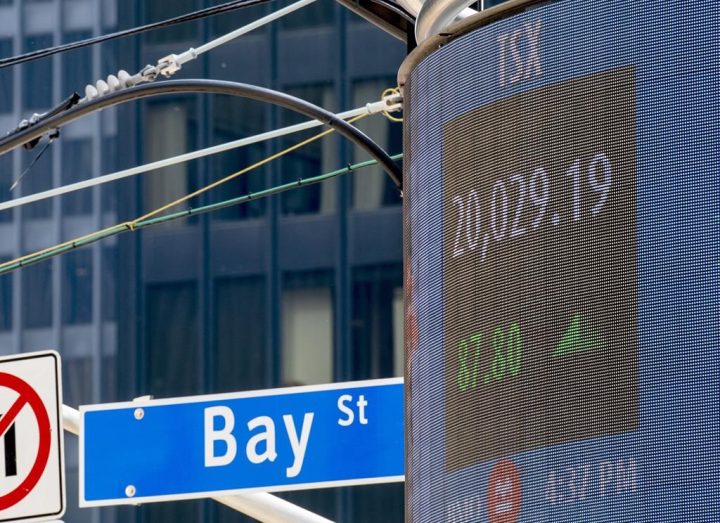Canada’s main stock index was up slightly Monday, with gains in energy, industrials, technology and utilities, while U.S. markets posted stronger gains.

The S&P/TSX composite index was up 72.63 points at 20,019.70.
U.S. markets rose steadily throughout the day. In New York, the Dow Jones industrial average was up 528.58 points, or 1.58 per cent, at 34,005.04. The S&P 500 index was up 56.18 points, or 1.43 per cent, at 3,990.56,while the Nasdaq composite was up 139.12 points, or 1.26 per cent, at 11,143.74.
“I think there is obviously a lot of anticipation for the week ahead,” said Mona Mahajan, senior investment strategist at Edward Jones.
While the Federal Reserve is announcing its last rate hike of the year on Wednesday, U.S. inflation data coming out Tuesday is perhaps the biggest release of the week, said Mahajan, as it could confirm hopes that rate hikes are having their intended effect.
“The expectation for tomorrow is for 7.3 per cent headline inflation versus 7.7 per cent last month,” she said.

Get weekly money news
It’s a big week for data in general, said Mahajan, as U.S. retail sales come out later this week. Meanwhile, inflation data for Canada is released next week.
The Bank of Canada recently raised its own overnight rate by 50 basis points for the last hike of the year, and the Feds are widely expected to do the same on Wednesday, said Mahajan.
The commentary that comes with the release may be more important than the hike itself, she said, as the Feds may offer signs of what’s to come in 2023 for interest rates and inflation.
In a speech Monday, the Bank of Canada’s Tiff Macklem warned getting inflation under control won’t be easy due to geopolitical trends like Russia’s invasion of Ukraine.
Oil prices have been sensitive to news about China’s COVID policies, swinging higher on days where there’s optimism about the country loosening restrictions.
“China has been a wild card all year. But generally, it feels like the direction of travel has been now towards loosening their COVID-zero policy rather than tightening it,” said Mahajan.
“And I think that does have interesting implications for both the supply chain and inflationary pressures from the demand side.”
The January crude oil contract was up US$2.15 at US$73.17 per barrel and the January natural gas contract was up 34 cents at US$6.59 per mmBTU.
The Canadian dollar traded for 73.22 cents UScompared with 73.37 cents US on Friday.
The February gold contract was down US$18.40 at US$1,792.30 an ounceand the March copper contract was down eight cents at US$3.80 a pound.







Comments